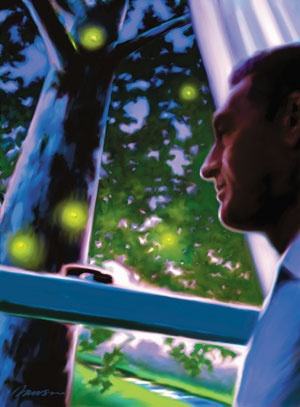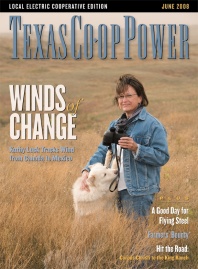The house was big and white and so absolutely plain it looked like an old farmhouse standing in the middle of Austin. As I walked up the front steps the first time, I didn’t imagine I was going to live there most of my adult life. I was starting my senior year in college, stopping by to see my cousin Judy and her husband and son, all of whom had just come back from two years in the Middle East.
At first, I didn’t understand why they were so thrilled with the house. I didn’t appreciate 10-foot ceilings or longleaf pine floors. But I saw how happy they were, and before I knew what was happening, Judy was on the phone, asking the landlady if I could talk to her about renting the upstairs.
Miss Trice, as she listed herself in the telephone directory, lived a block away. Oleanders hung over the gray stucco wall in front of her house, an iron gate opened into what felt like a tunnel, then a flight of stairs led up to a garden. When she came to the door, she looked like a witch with straggly hair, a beak nose, a sharp chin, snaggletoothed, and darting beady eyes. Her voice was raspy, and how she talked over the years! She’d taught English literature at the University of Texas where she had known anyone of consequence. An intimate of Harry Ransom, the founder of the Ransom Collection, she knew all the scandals and where all the skeletons were buried at UT. With the cicadas buzzing in the live oaks, making that hot slumbering sound, she went off on one tangent, then another. Listening to her was a bit like watching a dog hunt, making larger and larger loops in the grass, searching for the scent of a trail. Finally, remembering her point of departure, she gave me the key to 210.
When I opened the door, the staircase smelled musty, and, as I went up, the heat became stifling. The rooms, dark and shadowy, were furnished like stage sets. It felt claustrophobic until I raised one of the window shades and looked out at Hemphill Park across the street, two bands of green grass and trees flowing along the upper course of Waller Creek.
Months later, looking out those windows, I realized I wanted to stay there. An Oriental rug glowed in the afternoon sun, and the treetops beyond the park made a black frieze against the winter sky. With a war looming and young men my age coming home in body bags, everything about those months was precious—waking up at night to hear the hiss of sprinklers in the park, the way the old house would shake in the wind, the green shade of the sycamore tree.
Dealing with the draft and graduate school, I came and went for several years, sharing the house with friends. For a while, 210 filled up with bird-watchers; at another point, it became a haven for writers and editors. When I was 27, I took sole possession of the upstairs and arranged for a good friend, Suzanne, to move in downstairs. We shared friends and books, food and drink. We had Thanksgiving feasts in the backyard, autumn leaves falling onto dinner tables. We filled the upstairs with so many people dancing that the house would shake.
Miss Trice didn’t believe in selling property. Nor did she raise the rent or make improvements. The house became shabbily genteel. The sycamore tree out front grew bigger and bigger. Suzanne married and moved out of state, and Miss Trice died, giving me right of first refusal in her will.
My first mortgage payment was exactly 10 times my last rent check, but how could I refuse? The first plumber’s bill was $8,000. During one chaotic phase of leveling and painting, I took to walking out into the backyard at night to look at the windows of my bedroom. In the dark, I couldn’t see what needed to be done, just the yellow glow of lamplight.
Extraordinary things are often accomplished by making the same decision over and over—to practice the piano, to put on your running shoes, to sit down at your desk. And sometimes, very ordinary things, like staying in one place, become extraordinary. Living at 210 so long, the memories were so numerous and the associations so dense, that I began to feel as if I had swum out in very deep water. I couldn’t revisit the past. I lived in it. I had slept under the same roof so long I occasionally woke thinking I was in my childhood home.
Is it too obvious to think that the windows we look through every day frame our point of view? Perhaps mine was an ordinary experience, or perhaps my perception of time was altered. The thought of moving was unnerving, but the only way to know was to step away.
After the closing, I came home to take a nap in my favorite room, a corner bedroom so small it was all windows filled with the sycamore. Watching the green leaves sway, I remembered being in love in that room, white curtains billowing around us as if we were floating in a big nightgown.
After the movers unloaded our belongings at our new house, I went back alone to drop a set of keys in the mailbox. Twilight was settling. Fireflies hovered over the grass in the park. Frogs and crickets were beginning to sing in the creek. As I walked back down the steps, I knew it was a place of ordinary enchantment.
——————–
John Davidson lives in Austin and has been writing about Texas for 30 years.


